Have you registered for NECO, and have you selected to write for Food and Nutrition in the exam? Food and Nutrition is an amazing subject for students to discover how different foods work in your system, why certain diets matter, and how to plan meals that meet different needs.
If you will be writing the Food and Nutrition exam, then you need to have a syllabus to guide you in studying and getting ready for the exam. Search no further if you are searching for the NECO Syllabus for Food and Nutrition.
We have assisted you tremendously by providing you with the NECO Syllabus for Food and Nutrition. We encourage you to use the provided syllabus and set yourself on the right track for the exam.
Outline of NECO Syllabus for Food and Nutrition
Here is a clear and comprehensive outline of the NECO Food and Nutrition syllabus organized in table format for easy review:
| Component | Topics Covered | Skills / Objectives | Assessment Format |
|---|---|---|---|
| Nutrition & Health | – Meaning and importance of nutrition – Food habits and factors affecting them – Food nutrients: types, sources, functions, deficiency diseases – Metabolism (digestion/absorption) – Use of food composition tables & food tests – Careers in food & nutrition | – Understand nutrient roles and health impact – Plan balanced diets for various groups – Perform simple food tests – Explore career paths in nutrition | Paper I (objective); Paper II (essay on meal planning, deficiency management) |
| Meal Management | – Meal planning terms, reasons, principles, and patterns – Special nutritional needs for pregnant women, infants, adolescents, diabetics, hypertensives, etc | – Plan appropriate meals using nutrient tables – Adjust menus for special dietary needs | Paper II (essay questions on meal planning and special diets) |
| Food Laboratory & Equipment | – Types and planning of kitchens (traditional, modern, institutional) – Selection, use, care, and storage of equipment – Cleaning agents and abrasives – Kitchen safety and first aid | – Set up and maintain safe, efficient kitchens – Identify and use tools and equipment – Ensure hygiene, safety, and first aid awareness | Paper II (practical demonstration; Paper I theory questions) |
| Food Commodities | – Study of animal products, cereals, roots, fruits, vegetables, legumes, oils, fats | – Identify food items and their uses – Understand nutritional contributions of each commodity | Paper I (objective, short theory); Paper II, practical examples |
| Food Storage & Preservation | – Causes of food spoilage – Methods of preservation – Proper storage techniques | – Apply preservation methods – Prevent spoilage and maintain food quality | Paper II practical/theory questions |
| Food Preparation | – Cooking principles and methods – Heat transfer mechanisms – Cooking terms and use of food additives | – Prepare food correctly – Understand the effects of cooking and additives on nutrition | Paper II practical demonstration; Paper I theory questions |
| Flour Bakery & Confectionery | – Types of flour and ingredients – Mixing doughs/batters, raising agents – Cake and pastry preparations, icing, and decoration | – Bake and decorate basic bread, cakes, and pastries | Paper II practical tasks |
| Beverages | – Types, importance, and preparation principles of beverages | – Prepare and evaluate beverages for nutritional and sensory quality | Paper II practical/theory |
| Convenience, Leftover & Festive Foods | – Study of convenience and reheated foods – Planning and preparing festive dishes | – Design nutritious, culturally appropriate meals | Paper I/II integrated questions |
| Art of Entertaining | – Table setting, etiquette, and styles of meal service | – Apply correct serving skills and social etiquette in food presentation | Paper II practical/theory |
| Experimental Cookery | – Research into local dishes – Experimental cookery skills and innovation | – Experiment with recipes – Adapt traditional foods and document outcomes | Paper II: practical/project-based tasks |
| Consumer Education | – Food budgeting and purchasing – Understanding food labels and expiry dates – Food-related consumer rights and services | – Make smart consumer choices – Read labels and manage food budgets responsibly | Paper I/II (theory and application questions) |
Examination Structure
- Paper I (Objective & Theory): 60 multiple‑choice questions (1 hour) + essay questions on nutrition, food storage, meal planning, and consumer education (1 hour 15 minutes).
- Paper II (Practical & Theory): 3-hour practical exams conducted in food labs, assessing skills in cooking, baking, presentation, and hygiene, guided by a visiting examiner.
Recommended Textbooks
Here are some recommended textbooks for NECO Food and Nutrition that align well with the curriculum and help students build both theoretical knowledge and practical skills:
- Home Economics for Senior Secondary Schools by Popoola O.O.
- Food and Nutrition for Secondary Schools by M. Etukudo.
- Modern Approach to Food and Nutrition by A. Ayoade
- NERDC-approved Home Economics textbooks
Note: Using any of these books alongside past NECO question papers and practical exercises will give students a strong foundation to excel in both the theoretical and practical components of the exam.
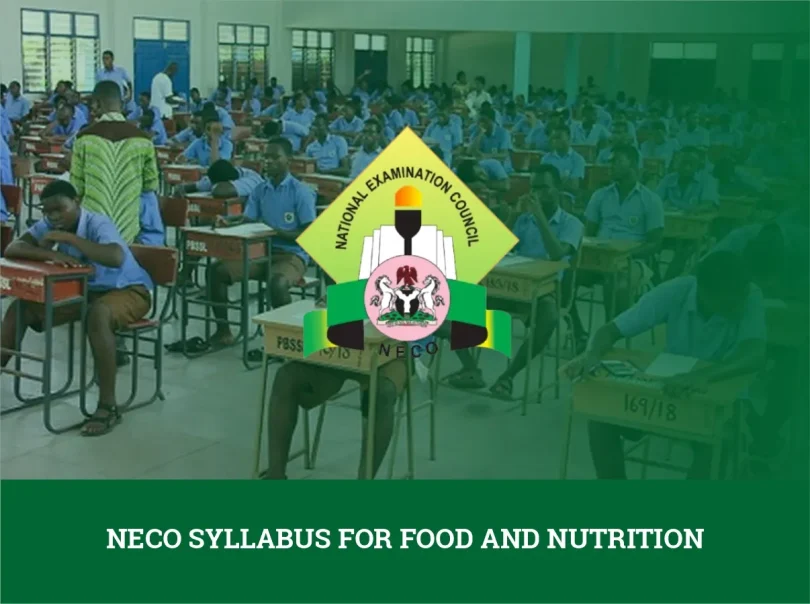
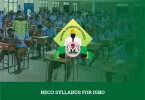
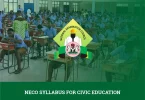
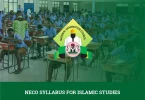


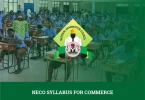
Leave a Comment